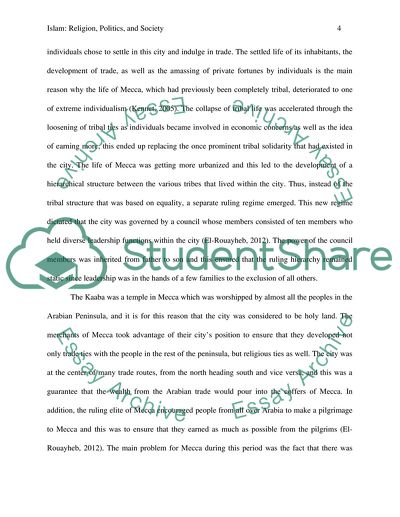Cite this document
(“Islam: Religion, Politics, and Society Essay Example | Topics and Well Written Essays - 1750 words”, n.d.)
Islam: Religion, Politics, and Society Essay Example | Topics and Well Written Essays - 1750 words. Retrieved from https://studentshare.org/history/1631135-islam-religion-politics-and-society
Islam: Religion, Politics, and Society Essay Example | Topics and Well Written Essays - 1750 words. Retrieved from https://studentshare.org/history/1631135-islam-religion-politics-and-society
(Islam: Religion, Politics, and Society Essay Example | Topics and Well Written Essays - 1750 Words)
Islam: Religion, Politics, and Society Essay Example | Topics and Well Written Essays - 1750 Words. https://studentshare.org/history/1631135-islam-religion-politics-and-society.
Islam: Religion, Politics, and Society Essay Example | Topics and Well Written Essays - 1750 Words. https://studentshare.org/history/1631135-islam-religion-politics-and-society.
“Islam: Religion, Politics, and Society Essay Example | Topics and Well Written Essays - 1750 Words”, n.d. https://studentshare.org/history/1631135-islam-religion-politics-and-society.


